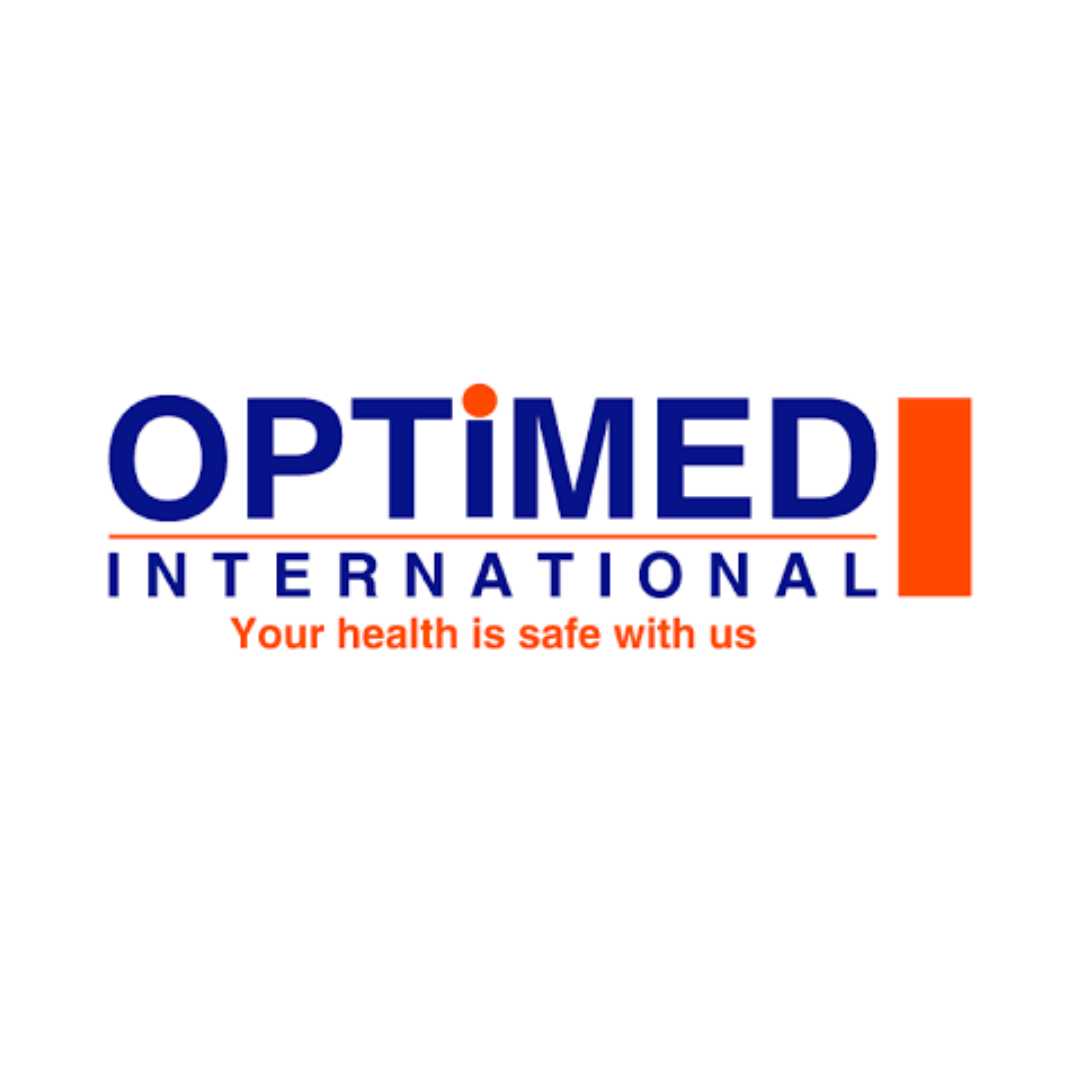Eligibility Criteria for Revision Gastric Sleeve in Turkey
.jpg)
Considering a revision gastric sleeve surgery can be a significant step, especially if your initial weight loss journey didn't go as planned. Many individuals who initially underwent a gastric sleeve procedure might find themselves needing a revision due to various reasons, ranging from inadequate weight loss to developing new health concerns.
It's a common scenario for those seeking to regain control over their health and achieve their long-term weight management goals. Understanding if you're a suitable candidate is the crucial first step.
Turkey has emerged as a leading destination for bariatric surgeries, including revision procedures, attracting patients worldwide due to its high-quality medical facilities, experienced surgeons, and cost-effective treatment options. If you're exploring the possibility of a revision gastric sleeve, it's essential to understand the specific criteria and what makes a patient an ideal candidate for this type of surgery in a medical tourism hub like Turkey.
What is Revision Gastric Sleeve Surgery?
A revision gastric sleeve surgery is not a primary weight loss procedure; instead, it's a secondary operation performed on individuals who have previously undergone a standard gastric sleeve gastrectomy. The purpose of this surgery is to address problems that have arisen since the initial procedure, such as insufficient weight loss, significant weight regain, or the development of severe complications like persistent acid reflux.
The specific technique used in a revision gastric sleeve can vary depending on the patient's individual circumstances and the issues being addressed. It might involve resizing the existing sleeve if it has stretched, converting the sleeve to another type of bariatric surgery like a gastric bypass, or repairing specific anatomical issues. The goal is always to optimize the patient's long-term health and weight management success.
Why Might Someone Need a Revision Gastric Sleeve?
There are several compelling reasons why a patient might consider a revision gastric sleeve. One of the primary motivations is when the initial gastric sleeve did not result in the expected amount of weight loss, or if the patient experienced substantial weight regain after an initial period of success. This can be incredibly frustrating and disheartening for individuals who have already committed to a major surgery and lifestyle changes.
Beyond weight-related issues, serious complications can also necessitate a revision. The most common complication leading to revision is severe and persistent gastroesophageal reflux disease (GERD), which can develop or worsen after a gastric sleeve.
Other less common reasons include strictures, fistulas, or other anatomical problems with the stomach pouch created during the first surgery. A thorough evaluation is always necessary to determine the exact cause of the problem and the most appropriate revision strategy.
What Are the Common Reasons for Weight Regain After Initial Gastric Sleeve?
Weight regain after gastric sleeve surgery is a complex issue, often stemming from a combination of factors. One significant physiological reason is the gradual dilation or stretching of the remaining stomach pouch over time. While the sleeve is designed to restrict food intake, consistent overeating or consumption of high-calorie, liquid, or soft foods can cause the sleeve to expand, reducing its restrictive effect.
Behavioral and lifestyle factors also play a critical role. Many patients may revert to old eating patterns, such as "grazing" throughout the day, consuming sugary beverages, or making poor food choices. Lack of regular physical activity and inadequate psychological support to address underlying emotional eating or food addiction can also contribute to weight regain. It's crucial for patients to understand that bariatric surgery is a tool, not a cure, and requires lifelong commitment to dietary and exercise guidelines.
What Criteria Make Someone a Candidate for Revision Gastric Sleeve in Turkey?
For individuals considering a revision gastric sleeve in Turkey, several key criteria are evaluated to determine suitability. Firstly, there's often a BMI requirement, generally indicating a BMI over 35 with significant co-morbidities like type 2 diabetes, severe sleep apnea, or high blood pressure, or a BMI over 40 without co-morbidities.
However, the primary indicator for revision is often a history of inadequate weight loss (less than 50% excess weight loss) from the initial surgery or significant weight regain after achieving initial success.
Beyond BMI and weight history, candidates must be in overall good health to withstand another surgical procedure. This involves a thorough medical evaluation to ensure there are no contraindications.
Psychologically, patients must demonstrate a clear understanding of the procedure, realistic expectations, and a firm commitment to long-term dietary changes, regular exercise, and follow-up care. Active substance abuse, uncontrolled psychiatric disorders, or an unwillingness to adhere to post-operative guidelines are generally disqualifying factors.
What Diagnostic Tests Are Required Before Revision Gastric Sleeve?
To accurately assess a candidate's need and suitability for revision gastric sleeve surgery, a series of comprehensive diagnostic tests are essential. These tests help the surgical team understand the current anatomy of the stomach, evaluate overall health, and identify any underlying issues that might impact the surgery or recovery.
Key diagnostic procedures include:
- Upper Endoscopy (EGD): This procedure involves inserting a thin, flexible tube with a camera down the throat to visualize the esophagus, stomach, and duodenum. It helps assess the integrity of the previous staple line, detect ulcers, strictures, or signs of severe reflux.
- Barium Swallow or Upper GI Series: Patients drink a contrast liquid, and X-rays are taken to visualize the shape and size of the gastric sleeve, identify any dilation, and evaluate for reflux or anatomical abnormalities.
- Comprehensive Blood Work: This includes a full blood count, metabolic panel, liver and kidney function tests, nutritional panels (vitamins and minerals), and hormone levels to check for deficiencies or underlying medical conditions.
- Cardiac Evaluation: An electrocardiogram (ECG) and potentially an echocardiogram or stress test may be performed to ensure the heart can safely withstand surgery.
- Psychological Assessment: This evaluates the patient's mental health, understanding of the procedure, motivation, and ability to adhere to post-operative lifestyle changes.
- Nutritional Assessment: A detailed review of the patient's current diet and eating habits to identify areas for improvement and support post-surgery.
These tests collectively provide a complete picture, allowing the surgical team to make informed decisions and tailor the revision procedure to the patient's specific needs.
What Are the Risks Associated with Revision Gastric Sleeve?
While revision gastric sleeve surgery can offer significant benefits, it carries inherent risks, some of which may be elevated compared to a primary gastric sleeve due to the complexity of operating on previously altered anatomy. Patients considering this procedure must be fully aware of these potential complications.
Common risks include:
- Staple Line Leaks: This is a serious complication where digestive fluids leak from the staple line, potentially leading to infection and sepsis.
- Bleeding: Both internal and external bleeding can occur during or after surgery.
- Infection: Surgical site infections or internal infections are possible.
- Stricture: Scarring can cause a narrowing of the sleeve, leading to difficulty eating or swallowing.
- Nutrient Deficiencies: Changes in digestion can lead to malabsorption of essential vitamins and minerals, requiring lifelong supplementation.
- Anesthesia Complications: As with any surgery, risks associated with general anesthesia exist.
- Conversion to Open Surgery: In rare cases, a laparoscopic procedure may need to be converted to an open surgery if unforeseen complications arise.
It's important to discuss these risks thoroughly with your surgeon, as individual patient factors and the specific nature of the revision can influence their likelihood.
How Does Medical Tourism in Turkey Work for Bariatric Surgery?
Turkey has become a hub for medical tourism, particularly for bariatric procedures like revision gastric sleeve. The process for international patients is typically streamlined and managed by specialized medical tourism facilitators or directly by the clinics themselves, ensuring a smooth experience from start to finish.
Here’s a general overview of how it works:
- Initial Consultation: Patients usually start with an online consultation, providing their medical history, current weight, and reasons for seeking revision. They communicate with an international patient coordinator who can answer questions and provide an initial assessment.
- Treatment Plan & Quote: Based on the initial assessment, a personalized treatment plan is developed, outlining the recommended procedure, estimated costs, and what's included in the package (e.g., surgery, hospital stay, medications, airport transfers, accommodation).
- Travel & Logistics: Once the patient approves the plan, the coordinator assists with travel arrangements, including booking flights, arranging airport pickups, and hotel stays near the hospital.
- Arrival & Pre-operative Assessments: Upon arrival in Turkey, the patient undergoes face-to-face consultations with the surgeon and medical team, along with all necessary diagnostic tests and evaluations at the hospital.
- Surgery & Hospital Stay: The revision gastric sleeve surgery is performed, followed by a typical hospital stay of 2-4 days for recovery and monitoring.
- Post-operative Care & Follow-up: After discharge, patients usually stay in Turkey for a few more days for post-operative checks before flying home. Comprehensive aftercare instructions and remote follow-up support are provided.
Many clinics offer all-inclusive packages that simplify the entire process, making it convenient and less stressful for international patients.
What Are the Benefits of Choosing Turkey for Revision Gastric Sleeve?
Turkey has positioned itself as a premier destination for bariatric surgery, drawing thousands of international patients each year. The advantages of undergoing a revision gastric sleeve in Turkey are numerous and compelling.
Key benefits include:
- Cost-Effectiveness: The most significant draw is the substantial cost savings. Revision gastric sleeve surgery in Turkey can be 50-70% less expensive than in Western countries like the UK, USA, or Canada, without compromising on quality.
- Experienced Surgeons: Turkish surgeons often have extensive experience with a high volume of bariatric cases, including complex revisions, providing a high level of expertise.
- Modern Facilities: Many hospitals in Turkey are state-of-the-art, equipped with advanced technology, and hold international accreditations like JCI (Joint Commission International), ensuring high standards of patient care and safety.
- Reduced Waiting Times: Patients often face long waiting lists for bariatric surgery in their home countries. Turkey typically offers much shorter waiting periods, allowing for quicker access to necessary treatment.
- All-Inclusive Packages: Many clinics provide comprehensive packages that cover not only the surgery but also pre-operative tests, hospital stay, surgeon fees, medications, airport transfers, and sometimes even accommodation, simplifying the logistics for international patients.
- High Standard of Care: The competitive medical tourism market in Turkey encourages clinics to maintain excellent standards of care, with multilingual staff and personalized patient support.
These factors combined make Turkey an attractive option for those seeking high-quality, affordable revision gastric sleeve surgery.
What is the Recovery Process Like After Revision Gastric Sleeve?
The recovery process following a revision gastric sleeve is similar to that of the initial gastric sleeve but may involve a slightly longer hospital stay or a more cautious approach, given the nature of a second surgery on previously operated tissue. Patients typically spend 2-4 days in the hospital for monitoring and initial recovery.
Upon discharge, a structured recovery plan is crucial:
- Dietary Progression: Patients follow a strict, phased diet, starting with clear liquids, progressing to full liquids, pureed foods, soft foods, and eventually solid foods over several weeks. Adherence to this diet is paramount to prevent complications and promote healing.
- Pain Management: Mild to moderate pain and discomfort are common, managed with prescribed pain medication.
- Activity Restrictions: Strenuous activities and heavy lifting are restricted for several weeks. Walking is encouraged early on to prevent blood clots and promote recovery.
- Hydration and Nutrition: Maintaining adequate hydration and taking prescribed vitamin and mineral supplements is critical to prevent dehydration and nutrient deficiencies.
- Follow-up Appointments: Regular follow-up with the medical team, often remotely for international patients, is essential to monitor progress, address concerns, and make necessary adjustments to the diet or lifestyle plan.
Full recovery, including the ability to resume all normal activities and stabilize eating patterns, can take several months. A strong support system and commitment to the post-operative guidelines are vital for success.
How Much Does Revision Gastric Sleeve Cost in Turkey?
One of the most appealing aspects of choosing Turkey for revision gastric sleeve surgery is the cost-effectiveness. The price point is considerably lower than what patients would expect to pay in many other developed nations, making high-quality surgical care accessible to a broader population.
The cost of revision gastric sleeve surgery in Turkey generally ranges from $4,000 to $8,000. This price can vary based on several factors:
- Clinic and Surgeon Reputation: Highly renowned clinics and surgeons may charge slightly more, reflecting their expertise and success rates.
- Inclusions in the Package: Many clinics offer all-inclusive packages that cover:
- Pre-operative consultations and diagnostic tests.
- The surgical procedure itself.
- Anesthesia fees.
- Hospital stay (typically 2-4 nights).
- Post-operative medications.
- Airport transfers.
- Sometimes, a few nights of hotel accommodation.
- Complexity of the Revision: More complex revisions or those requiring specialized techniques might be at the higher end of the price spectrum.
When comparing these costs to Western countries where the same procedure can easily cost upwards of $15,000 to $30,000 or more, the value proposition in Turkey becomes clear. Patients receive high-standard medical care in modern facilities, often accompanied by personalized assistance for their travel and stay, all at a fraction of the price.
If you are considering revision gastric sleeve surgery and want to explore your options, PlacidWay can connect you with world-class facilities and expert surgeons in Turkey, offering comprehensive solutions for your medical tourism needs.


.png)




.png)
.png)
-(1).png)
.png)






Share this listing